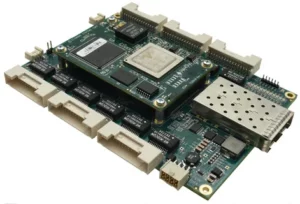The technological landscape for 2024 is shaping up to be an exciting amalgamation of innovative trends, each poised to impact various sectors worldwide significantly. At the forefront of these trends is Generative AI (GenAI), which is expected to revolutionise how businesses operate.
According to the predictions, GenAI chip sales will likely surpass US $ 50 billion in 2024, with nearly all enterprise software companies integrating GenAI into some of their offerings by the year’s end. The integration is anticipated to boost revenues by an astounding US$10 billion.
Alongside GenAI, multi-cloud technologies, edge computing, and open ecosystems are also gaining traction. These technologies are part of what Dell describes as the fastest adoption curve of technology witnessed in recent years. The accelerated innovation in multi-cloud and edge computing indicates a shift towards more flexible, scalable, and efficient computing solutions, catering to the increasing demand for advanced technological capabilities across various industries.
By 2026, it is predicted that over 80% of enterprises will have utilised GenAI APIs, highlighting this technology’s widespread adoption and integration shortly. Worldwide IT spending is also projected to grow significantly, with $5.1 trillion expected in 2024, marking an 8% increase from 2023. The broader investment in AI technologies supports this increase in IT spending, indicating a robust and expanding market for technological advancements globally.
Artificial Intelligence and Machine Learning
The realm of Artificial Intelligence (AI) and Machine Learning (ML) is expected to continue its rapid evolution in 2024. Advancements in AI algorithms and machine learning techniques are set to open new avenues for applications across various industries. From healthcare to finance, these technologies streamline processes and provide previously unattainable insights.
For example, AI-driven diagnostic tools and personalised treatment plans are becoming more prevalent in healthcare, offering hope for more effective and targeted medical interventions.
AI transforms how we understand consumer behavior, risk management, AI detector plagiarism and fraud detection in finance, making financial services more secure and user-friendly.
Quantum Computing
Although still nascent, Quantum computing is beginning to make waves in the tech community. Its potential to process vast amounts of data at unprecedented speeds makes it a game-changer, particularly in areas requiring immense computational power like climate modelling, pharmaceutical research, and complex systems simulation.
One of the most significant impacts of quantum computing is expected to be in the field of data security. As quantum computers become more capable, they could break traditional encryption methods, necessitating the development of new quantum-resistant cybersecurity protocols.
5G and Beyond
The expansion of 5G networks is set to continue its momentum in 2024, further enhancing connectivity and enabling a new era of Internet of Things (IoT) applications. With higher speeds, lower latency, and increased capacity, 5G enables innovations in smart cities, autonomous vehicles, and augmented reality experiences.
Significantly, this advanced connectivity facilitates seamless access to online services, including the best casino apps in India, which are increasingly popular for their convenience and immersive experiences. As 5G networks expand, these apps are expected to become more responsive and engaging, offering users a top-notch digital casino experience.
Beyond 5G, the early groundwork for 6G technology is being laid, promising even more revolutionary changes in wireless communication, potentially offering terahertz frequencies and enabling connectivity for advanced AI applications.
Sustainable and Green Technologies
Sustainable and green technologies are gaining significant attention as the world grapples with environmental challenges. Innovations in renewable energy, such as more efficient solar panels and wind turbines, are expected to become more prevalent. Energy storage technologies, crucial for managing the intermittent nature of renewable sources, are also set to advance.
Furthermore, green technologies are making their way into everyday products, from biodegradable materials to energy-efficient appliances, reflecting a growing consumer demand for sustainable options.
Blockchain and Cryptocurrency
Blockchain technology and cryptocurrencies are set to extend their impact beyond finance. The decentralised nature of blockchain makes it a promising tool for applications requiring transparent and secure record-keeping, such as in supply chain management and voting systems. Cryptocurrencies, including Bitcoin and Ethereum, continue to gain acceptance, not just as investment vehicles but also as legitimate forms of payment.
The rise of Non-Fungible Tokens (NFTs) and Decentralised Finance (DeFi) platforms is a further example of how blockchain technology diversifies and finds new use cases.
Health Tech
In the health tech sector, 2024 is expected to see significant advancements. Telemedicine is becoming more sophisticated, with AI-driven diagnostics and remote monitoring becoming more prevalent. Personalised medicine, powered by advances in genomics and biotechnology, is set to offer treatments tailored to individual patient profiles.
Additionally, new developments in biotechnology, such as CRISPR gene editing and stem cell therapy, are poised to bring groundbreaking treatments for various diseases.
Impact on Businesses and Consumers
These technological trends are not just academic; they have real-world implications for businesses and consumers. AI and ML automate tasks and provide insights that help companies operate more efficiently and make more informed decisions. Quantum computing, although still in development, has the potential to revolutionise industries by solving complex problems that are currently intractable.
The expansion of 5G and the development of 6G enable businesses to create new products and services that were previously impossible, like advanced IoT applications and immersive AR/VR experiences. These technologies mean more personalised and efficient consumer services, from healthcare to finance.
Challenges and Considerations
However, these advancements are not without their challenges. Privacy and ethical considerations are significant concerns, particularly around AI and ML. As these technologies become more integrated into our lives, ensuring they are used responsibly and ethically is paramount. The digital divide is another issue, as only some have equal access to these advanced technologies, which could lead to widening socioeconomic disparities.

Conclusion
As we look towards 2024, the technological landscape is set to be dynamic and transformative. From the continued rise of AI and ML to the nascent field of quantum computing, these developments promise to reshape industries and change how we live and work. While these advancements bring exciting possibilities, they also have challenges that must be addressed to ensure these technologies benefit everyone.





Be First to Comment